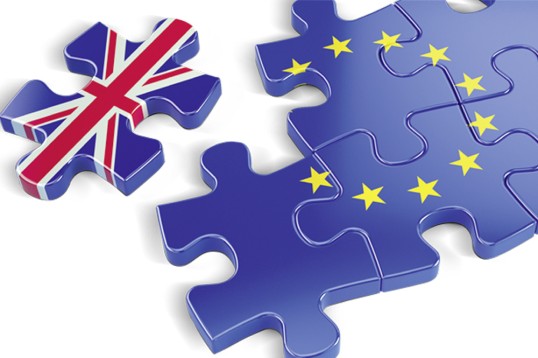Information about Brexit
What does Brexit mean in terms of shipping parcels to the UK?
The UK has ceased to be a member of the EU since January 1st 2021 and now has the status of a third country. This means that trade between the EU and the UK will be subject to customs supervision.
Is shipping to Ireland affected by Brexit?
With Brexit, the United Kingdom, i.e. Great Britain and Northern Ireland, exits the European Union.
The Republic of Ireland is not affected by Brexit and remains a member of the EU. This means that shipping to Ireland (Republic of Ireland) can be done without customs treatment.
The delivery time can however be affected by + 2 days if GLS will have to sail directly to Ireland from France.
Is shipping to Northern Ireland affected by Brexit?
Parcels to Northern Ireland will, according to the Brexit withdrawal agreement, not be subject to customs supervision, and can therefore be sent without customs documents.
Parcels for northern Ireland will still be routed through Great Britain and the postal codes belonging to Northern Ireland (Postal codes starting with BT). The parcels will be sent as transit freight directly to Northern Ireland through Great Briatain.
What customs documents and information will be required?
In the event of a no-deal Brexit, senders will have to provide the following:
- The full details of the importer (if not the recipient):
Name, address, telephone number and mail address. - Full commercial invoice. Besides the general information required on a commercial invoice, it also has to show the EORI (Economic Operators’ Registration and Identification) number for commercial recipients.
- The following information must be provided for all invoice items:
• All customs tariff numbers
• Gross and net weight
• An exact description of the goods
• Country of origin
• Value (incl. currency)
Where can I access information on customs tariff numbers?
When shipping to the UK, the appropriate goods/customs tariff number must be provided.
Detailed information about goods/customs tariff numbers is available online: https://skat.dk
Is an export declaration required when shipping to the UK?
For goods worth 7.500 kr. or more, senders must complete an electronic customs declaration when shipping parcels to EFTA countries and third countries (which the UK will become).
In Denmark, this is done via https://skat.dk .
GLS Denmark also supports you with this - you just have to send us the invoice. The cost for the export declaration is DKK 100 incl. 3 position numbers.
What Incoterms are available for shipping to the UK?
Incoterms set out which customs-related costs are borne by the sender and which are borne by the recipient. Incoterms must clearly appear on your invoice to the recipient.
When shipping to the UK with GLS, senders can choose from the following options:
- Incoterm 40 (DDU, cleared): Only for invoice value above 135 GBP.
Freight costs and customs clearance costs paid VAT and customs duties and other taxes not paid. Sender pays freight and customs declaration, importer pays VAT, customs duties and other taxes, why recipient's UK VAT no. must appear on the invoice. - Incoterm 60 (Pick&ShipService, Pick&ReturnService): Freight costs, customs clearance costs, customs duties and taxes paid – the customer pays all resulting costs, the importer bears no costs.
- Incoterm 18 (DDP, VAT pre-registration): For invoice value below 135 GBP.
Freight costs, costs for customs clearance, VAT, customs duties and other taxes paid by the sender.
The sender must provide a UK VAT/EORI number. Either its own or the recipient's. If the recipient's number is used, text about this must appear on the invoice, e.g. "use importer account for VAT to HMRC".
Is it possible to send gifts/samples to the UK without incurring duty (Simplified Procedure as per Incoterm 50)?
The British government has decided that the limit for low-value clearance will cease to apply on the day of Brexit.
All goods, however low the value, must be declared.
Is collective customs clearance possible?
Alongside the option of individual customs clearance, GLS also offers collective customs clearance in order to make customs handling as efficient and cost-effective as possible.
- Individual customs clearance: customs consignment comprises one or more parcels for a single recipient. Generally speaking, customs clearance will be carried out directly for the end recipient or an importer acting on behalf of the end recipient.
- Collective clearance: customs consignment comprises multiple parcels for different recipients. Customs clearance is carried out for different recipients (i.e. for multiple delivery addresses) on the basis of a single invoice via an importer. In this instance, only one clearance fee is charged, which can then be broken down to individual parcels. For example, the importer may be the branch office of a consignor company, the fiscal representative of a Danish company registered in the UK with a British tax number or a sole importer.
Are there any new rules for exporting to the Channel Islands?
A separate invoice must be prepared and maybe also an export declaration to recipients in the Channel Islands.
The parcels can not be on a collective invoice to the United Kingdom.
What changes will take place in terms of imports?
Basically, goods coming from the UK will be subject to import customs clearance.
For recipients, this means that any resulting taxes, customs duties and clearance fees may, depending on the Incoterms stipulated by the sender, have to be borne by the recipient.
What additional costs will be incurred when shipping to the UK?
When shipping to the UK, additional costs (i.e. taxes, customs duties and clearance fees) will occur in addition to shipping costs.
- Import VAT in the UK currently stands at 20%.
- The customs duties payable depend on the type of goods being shipped and the tariffs set by the British government, assuming that no exemption based on country of origin applies.
- The clearance fee will be charged by GLS for its customs clearance service and covers the significant additional labour incurred as a result of the customs clearance process.
What delivery times apply to shipments to/from the UK?
Before Brexit, GLS parcels from Denmark would normally reach the UK within a standard delivery time of 2-3 workdays. We expect this delivery time will increase with 1 day. We will do everything we can to maintain optimal delivery times after Brexit. However, the customs clearance process may lead to delays that are beyond our control.
The invoice on the shipment must reach GLS no later than 3 pm on the day of departure, if you want to make sure that the parcels will be sent to the UK the same day.
The invoice must be sent to export@gls-denmark.com .
Are there any restrictions on shipping goods to the UK?
Not beyond those mentioned in our General Terms .


